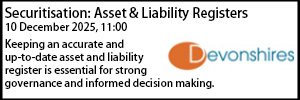LLG and ADSO dismay after Information Commissioner upholds decision that their FOI request for information on remote meetings call for evidence was “vexatious”
- Details
Lawyers in Local Government (LLG) and the Association of Democratic Services Officers (ADSO) have said they are “profoundly disappointed” after the Information Commissioner's Office (ICO) found their freedom of information (FOI) request asking for all information received with the responses to the Government’s call for evidence on remote meetings to be “vexatious”.
The organisations submitted their FOI request to the Department of Levelling Up, Housing and Communities (DLUHC) in February 2023, but were rebuffed as the time spent responding on the request would "divert valuable resources away from important work".
The membership bodies, which have been campaigning for the Government to reinstate remote meetings for local councils, requested to see a breakdown of the responses, the number received and the content of the responses, together with any documentation with Government analysis of the responses.
But DLUHC said the request was vexatious under section 14(1) of the Freedom of Information Act 2000, prompting a complaint to the ICO.
The Department told the ICO that there were 4,370 responses which would need to be reviewed and potentially redacted to remove any personal data.
It said that it would take 157 hours to review all of the text fields ahead of sending the information to LLG.
DLUHC added that it still intended to respond to the “call for evidence” and the response would include a summary of the responses received.
LLG and ADSO meanwhile argued that disclosing the requested information would support the principles of openness, transparency and accountability that the public justifiably expected.
The organisations also argued that any burden placed on the DLUHC would be overridden by the public interest, and that public interest was clearly demonstrated as 4,370 responses had been received.
The Department’s decision that the request was vexatious was, in their view, an attempt to stall remote meeting provision.
The ICO decision notice said: "The Commissioner is satisfied that for the request to be responded to in full, the DLUHC would have to undertake a large amount of work, which would be burdensome. The Commissioner also notes that even if DLUHC only spent one minute reviewing each response, this would still require 72 hours of work. The Commissioner notes that under section 12(1) of FOIA, DLUHC would be entitled to refuse requests that require in excess of 24 hours. This demonstrates that the amount of work required to respond to the request would be excessively burdensome."
The Commissioner also noted that it was "unable to agree" that the value of the request was so profound as to justify the considerable burden that would be placed on DLUHC if it attempted to comply with the request.
In a joint statement responding to the ICO's decision, LLG's Head of Public Affairs, Helen McGrath and ADSO's Chair, John Austin, said: "We are dismayed to see that the Information Commissioner has found in favour of DLUHC in their refusal to provide the information we asked for, despite accepting that the number of responses submitted to the Call for Evidence does indicate widespread interest.
“We are also disappointed that the Commissioner has failed to properly hold DLUHC to account by accepting that the government intends to publish the evidence, but without, it seems, any commitment to when the information will be made available. It has of course been over two years now and we are at a loss to understand when the appropriate time might be, given the sector has been calling strongly for provision of remote meetings since the effect of the sunset clause was understood in the context of the coronavirus provisions.”
McGrath and Austin added: "We remain profoundly disappointed that the ICO, with its remit of ‘empowering through information’ has not, on this occasion, been able to give effect to that.
"The result is that DLUHC is once again able to ‘kick the can down the road’.
"We can only now watch the progress of the Levelling Up and Regeneration Bill and hope that the government does what the sector is so loudly calling for, which is to accept the Lord’s amendment to put remote meeting provision for local authorities into permanent law once and for all."
Responding to the ICO's decision, the Government gave its strongest indication yet that it plans to keep councils from conducting remote meetings after saying it does not agree that councillors should be able to attend meetings and cast their votes remotely.
In a statement, a spokesperson for the Department for Levelling Up, Housing and Communities (DLUHC) said: "It is the strong view of the Government that one of the core principles of local democracy is that citizens can attend council meetings to interact in person with their local representatives.
"We do not agree that councillors should be able to attend these meetings and cast their votes remotely. It is important that they are present, active participants in local democracy.
In turn LLG and ADSO said: "The response from DLUHC has totally missed the point of the FOI request. They have not addressed the issue. We asked for the outcome of the call for evidence, not for the Government's view on remote meetings. The latest standard response from DLUHC confirms our view that the Government has no intention of publishing the results because it is not in their interest to do so."
Despite the Government's opposition, the House of Lords passed an amendment to the Levelling Up and Regeneration Bill in July, allowing council meetings to occur remotely.
The House of Commons is set to consider the Lords amendments later this month (17 October).
Adam Carey
Regulatory/Litigation Lawyer
Legal Director - Government and Public Sector
Governance Lawyer
Poll


















